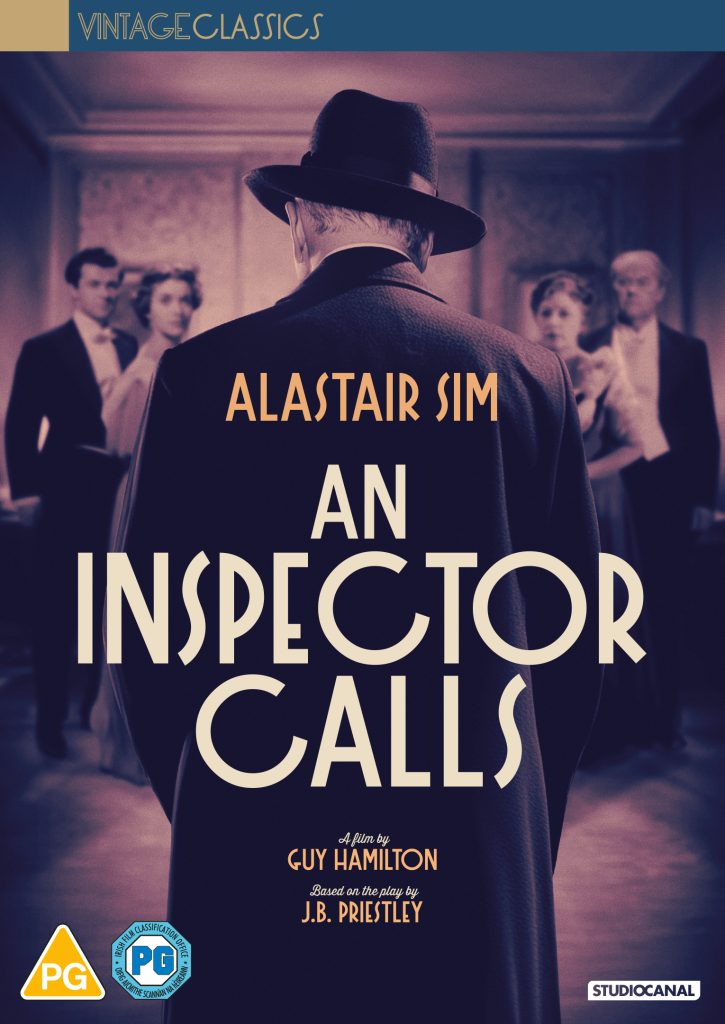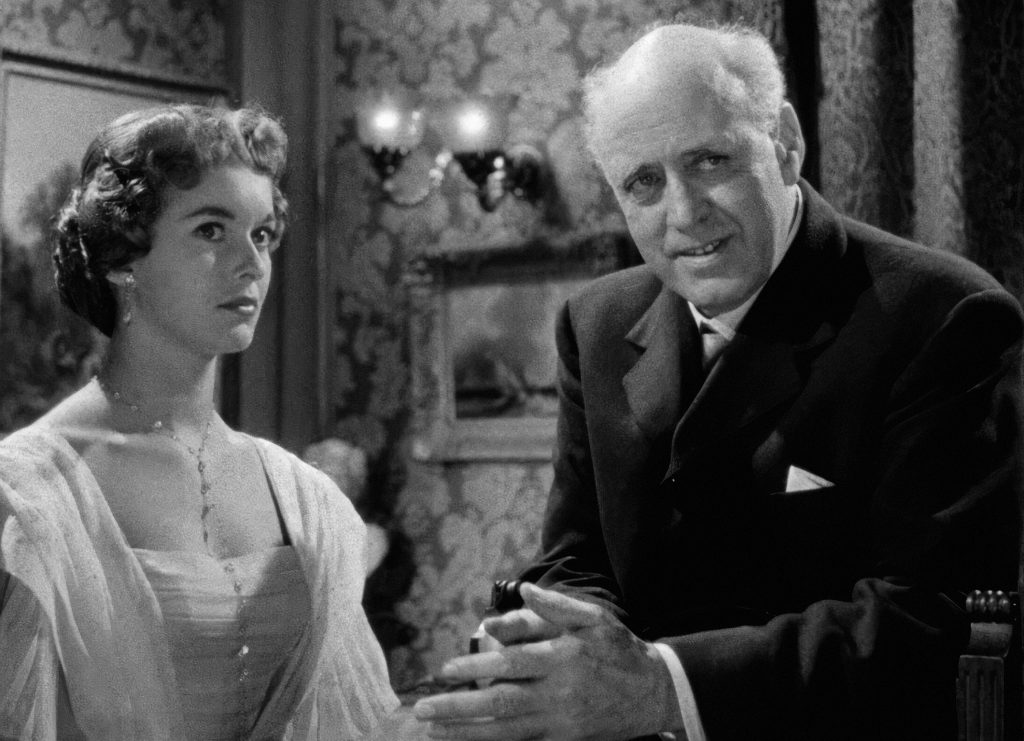
“But if I could help her now, believe me I would.”
“I’m sure you would, Miss Birling. But you can’t. It’s a great pity. She’s dead.”
The very first time I saw AN INSPECTOR CALLS (1954) I missed the beginning and I remember it annoyed me for years until I managed to see it broadcast again from the beginning. This was 1980 long before the dawn of VCRs and we had three channels. Not so much surfing as jumping from one puddle the next and back again. If you missed something then you’d have to wait for a rerun and hope to god it didn’t clash with something your parents wanted to watch. So I was possibly the only 8-year-old in the country torn up by missing part of a 25-year-old black-and-white drawing-room play with Alastair Simm about the dangers of classism in the early 1900s.
I remember being annoyed all the way through The Tomorrow People which followed it and asked my grandmother again just how much I’d missed as she passed me a jam sandwich. ‘Not much,’ she said. And a week later she borrowed a copy of the play from her friend who was a headmistress and gave it to me so I could ‘catch up’.
This didn’t blossom a life-long love of JB Priestly, but it probably did help foster my drive to become a completist.
My slow walk home from school coupled with ITV’s rainy May afternoon schedule robbed me of something that I had now partially clawed back. So it was a win.
Since then I’ve seen the film countless times of course. The only other adaptation that I’ve seen (and there are many once you add the various radio versions to the pile) is the 2015 Hong Kong version which is the loosest interpretation of the text, hitting the audience in the face with a pie like a lost Willy Wonka movie directed by Michel Gondry and Mack Sennett. I’ll drop the trailer after the story.
But I don’t think I’ve seen the ‘54 version in almost a decade so it was a delightful surprise when the kind folk at Emfoundation asked if I’d like to take a look at the 70th anniversary 4K restoration. I waited until both kids were back at school and spent a morning watching The Inspector drop himself into the lives of the Birling family like a slow-motion hand-grenade.

I’m gonna keep this spoiler-free because older movies now inhabit this odd space where people can discover them pretty late on without ever having heard of them or ever having seen a glimpse of them on TV. I stopped watching terrestrial broadcast television decades ago, but it feels like stumbling across a movie while channel surfing is already long gone. I guess horribly cropped portrait-orientated clips with AI voice-overs on Tik Tok have maybe replaced that experience. Anyway, if you’re one of the folk who has never had the pleasure I implore you to fix that. Here’s a brief synopsis.
It’s 1912 and an upper class English family, the Birlings are celebrating. Life is good, at least around their table, and the future looks rosy. Talk of war is laughed off. This is the modern age and humanity has left such nonsense behind. If the family continues to do as it has always done and not make any foolish mistakes then they will all flourish together. Time for the ladies to retire so the men can talk of more important things and… and then a stranger appears. A police officer. Inspector Poole. A young woman has died this evening and he believes that perhaps the Birlings family may know why…
The movie itself is of course, a masterpiece. Guy Hamilton is now best known for his four Bond movies, but he did far more interesting movies in the 50s and 60s – I’ve spoken about THE PARTY’S OVER (1965) before – and here he follows THE INTRUDER (1953), a movie partially unfolded in flashbacks, by opening up and expanding the play while also improving on Priestly’s original name for The Inspector and providing generations of GCSE students a little a-ha moment.
Alastair Simm is, of course, the heart of the movie – albeit a sardonic looming slow beat of a bastard with a malicious streak behind his sad smile.
“So if I don’t choose to discuss it any further, you have no power to make me change my mind.”
“I’m afraid I have that power, Missus Birling.”
As the rest of the cast spin faster and faster around the presence that he has brought back into their lives The Inspector, for the most part, simply sits and watches it all unfold. Omniscient and unmovable. Simm would have made a fine Judge Holden. As it is when he does speak his lines have a weight that slowly crushes the family.
“Was she pretty?”
“She wasn’t very pretty when I saw her last in the infirmary.”
The restoration was a tricky one apparently as the original negative was in a bad way, but you’d never tell from this release. It’s a huge upgrade from whatever dusty old print I saw back in the day. The audio commentary is brought over from the last release and is serviceable with a GCSE level reading of the plot and the odd comparison to Downtown Abby, but there’s enough trivia sprinkled though it to keep it interesting. There’s also a fun interview with the late Jane Wenham who played Eve, the lynchpin of the movie, while the brand new overview from critic Anna Smith is first rate.
Mostly though it was great to have an excuse to watch a grand old movie again on a rainy afternoon and also reminded me I should probably do it more often.
